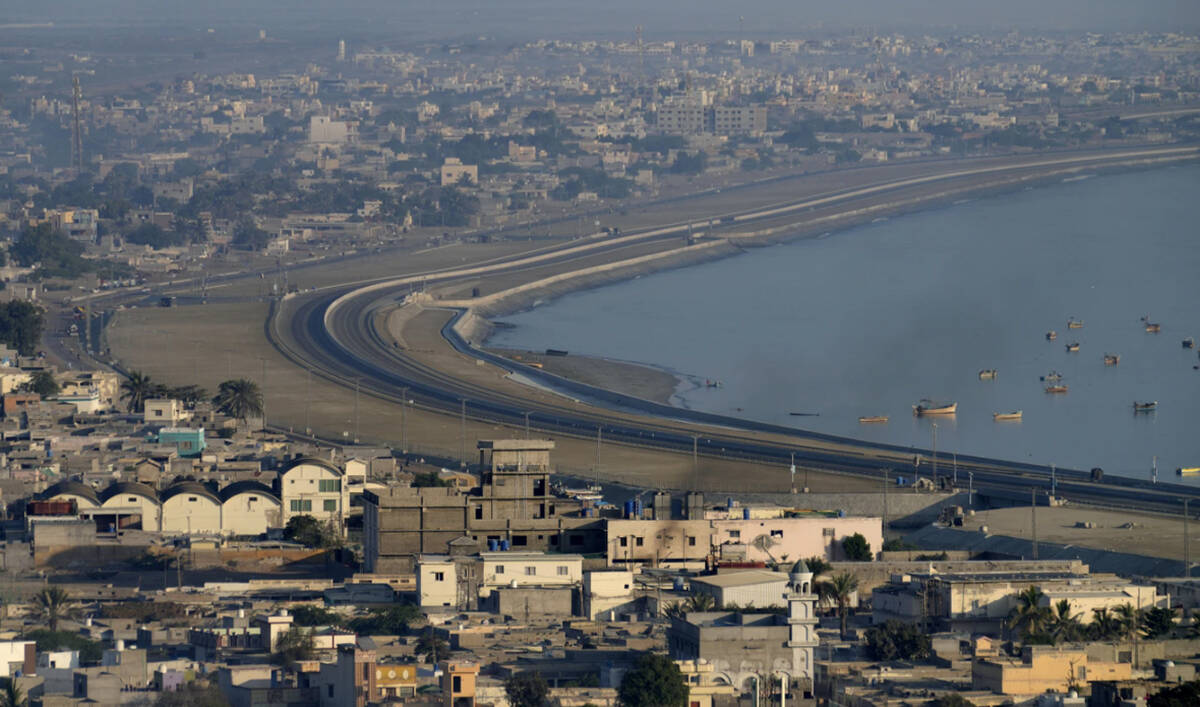ISLAMABAD: In a major blow to the government, the joint opposition candidate Yousuf Raza Gillani won the general seat from Islamabad, beating the government’s candidate, finance minister Abdul Hafeez Shaikh, in a hotly contested election for 37 seats in the upper house of parliament, local media reported.
Election commission officials started counting the votes after 5pm – the official deadline to close the polls – in the National Assembly and all three provincial assemblies including Sindh, Balochistan and Khyber Pakhtunkhwa. Eleven senators from Punjab have already been declared unopposed winners.
The ruling party, Pakistan Tehreek-e-Insaf (PTI), and an opposition alliance, waged a tough competition to get their candidates Shaikh and Gillani elected respectively, to win a majority in the National Assembly. Pakistani media channels reported on Wednesday evening that Gillani, who is a former prime minister of Pakistan and belongs to the Pakistan Peoples Party, had won against Shaikh, in what is being seen as a major upset for the government of Prime Minister Imran Khan.
The 342-member lower house of the parliament is the electoral college for the two Islamabad seats where it currently has 341 members, with one vacant seat.
“It’s a serious loss for the government of Imran Khan which has lost its majority in the house,” Mohammad Malick, senior political journalist and TV anchor, told Arab News. “Today the government has to worry about two things: a resurgent opposition and an ostensibly neutral establishment. Unless Khan regroups, makes big changes in Punjab and center, he might end up with a perpetually neutral establishment and an emboldened opposition — a combination which could prove fatal for his government.”
Voting started at 9am this morning for an election that has been marred by accusations of corrupt practices and a controversy over the method of voting.
In Pakistan, a senator serves a term of six years, barring resignation, disqualification, or other extraordinary circumstances. Half of the senators are elected at one time, and the other half three years later.
This year, 52 senators elected in 2015 are set to retire; the other 52 will retire in 2024. However, elections are being held only for 48 seats after Pakistan’s northwestern Federally Administered Tribal Areas (FATA) were merged with the Khyber Pakhtunkhwa province in 2018. The Senate thus now comprises 100 lawmakers: 23 each from all the provinces and four from Islamabad. The remaining four senators from FATA will retire in 2024.
The Pakistani Supreme Court ruled this Monday that upcoming senate elections would continue to be held through a secret ballot as per the constitution but directed the election commission to use technology to check against corrupt practices in the polls.
The court’s 4:1 verdict came in response to a presidential reference filed on December 23, 2020 seeking the court’s opinion on whether voting in senate elections could be held through an open ballot.
The government of PM Khan has argued that open balloting would introduce transparency into a voting process that has long been plagued by irregularities, with national and provincial lawmakers accused of selling their votes.
Leaders of an 11-party opposition alliance, the Pakistan Democratic Movement (PDM), have opposed the government’s move to try to hold senate elections through an open ballot, and one of the major parties in the alliance, the Jamiat-e-Ulema Islam, had filed a petition in the Supreme Court against the Election Amendment Ordinance 2021.
On Tuesday, the election commission said senate elections this year would be held as ‘per past practices,’ saying it was setting up a monitoring mechanism to identify corrupt practices in the elections.
On Tuesday night, a video surfaced showing the son of former prime minister Gillani, the joint opposition’s most prominent candidate for the polls, explaining to lawmakers how they can waste their vote during the election.
The government has since demanded the election commission declare Gillani ineligible and has filed a reference with the commission seeking his disqualification for being involved in “corrupt practices.”
















